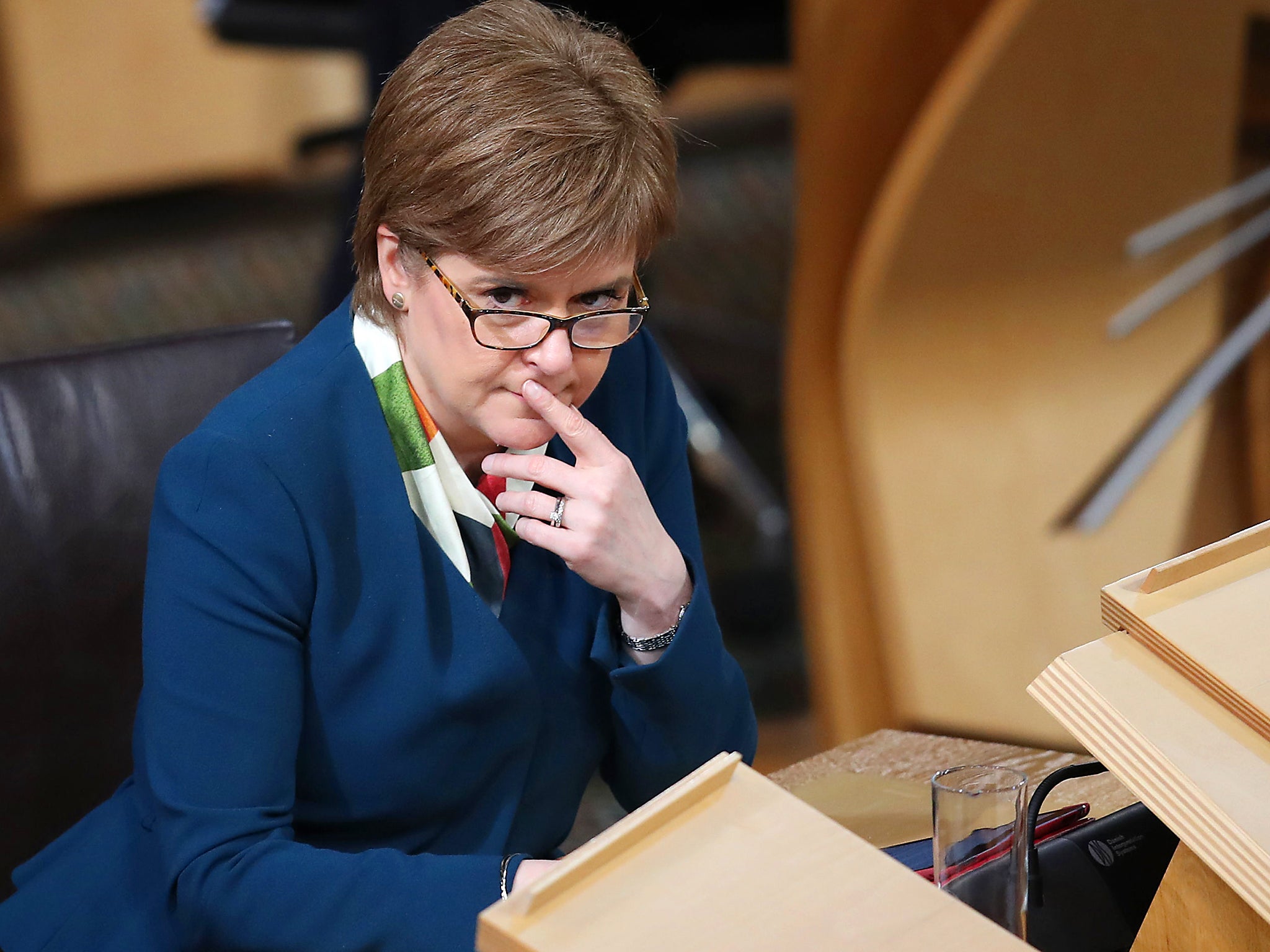Hard Brexit 'threatens economic catastrophe for UK', Nicola Sturgeon says
The First Minister suggests Theresa May’s speech has made a second Scottish independence referendum ‘more likely’

Nicola Sturgeon has warned a hard Brexit “threatens to be economically catastrophic” for the UK and intimated that a second referendum on Scottish independence is now “more likely”.
Scotland’s First Minister was reacting to Prime Minister Theresa May's speech setting out her negotiation priorities for Brexit. Ms May said the UK would leave the single market – though attempt to maintain the “greatest possible access” to it – while forging a “bold” trade deal with the EU and similar new agreements around the world.
The final Brexit deal will be put before Parliament, Ms May promised, but warned European leaders that trying to impose a “punitive” settlement would be “an act of calamitous self-harm”, adding “no deal for Britain is better than a bad deal”.
But Ms Sturgeon said Westminster must take seriously her proposal that Scotland be allowed the option of staying in the single market, and that Parliament “cannot be allowed to act against Scotland's wishes and our interests”.
She said: “While discussions on these proposals continue, and while the Prime Minister today reiterated her pledge to give our plan proper consideration, we have not yet seen evidence that Scotland’s voice is being listened to or our interests taken into account.
“The UK Government cannot be allowed to take us out of the EU and the single market, regardless of the impact on our economy, jobs, living standards and our reputation as an open, tolerant country, without Scotland having the ability to choose between that and a different future.
“With her comments today, the Prime Minister has only succeeded in making that choice more likely.”
Strengthening the bonds between the four countries of the UK was one of the 12 key objectives Ms May laid out in her speech.
She said: “Foreign affairs are of course the responsibility of the UK Government, and in dealing with them we act in the interests of all parts of the United Kingdom. As Prime Minister, I take that responsibility seriously.
“I have also been determined from the start that the devolved administrations should be fully engaged in this process.
“That is why the Government has set up a joint ministerial committee on EU negotiations, so ministers from each of the UK’s devolved administrations can contribute to the process of planning for our departure from the European Union.
“We won't agree on everything, but I look forward to working with the administrations in Scotland, Wales and Northern Ireland to deliver a Brexit that works for the whole of the United Kingdom.
“Part of that will mean working very carefully to ensure that, as powers are repatriated from Brussels back to Britain, the right powers are returned to Westminster, and the right powers are passed to the devolved administrations of Scotland, Wales and Northern Ireland.
“As we do so, our guiding principle must be to ensure that as we leave the European Union no new barriers to living and doing business within our own Union are created.”
Ms Sturgeon reacted forcefully to another element of Ms May's speech – when the Prime Minister warned the EU that Britain “would be free to change the basis of [its] economic model” if barred from accessing the single market, signalling the potential for new policies and lower tax rates to “attract the world's best companies and biggest investors”.
Ms Sturgeon said: “It is becoming clear that a more fundamental issue is emerging – not just whether the UK is in or out of the EU, but what kind of country it is going to be.
“The Prime Minister gave the game away towards the end of the speech when she talked of the potential for the UK to become a low-wage, low-tax, deregulated economy.
“That would see a race to the bottom replace our membership of the single market and everyone, apart perhaps from the very wealthiest, would be worse off as a result.”
Join our commenting forum
Join thought-provoking conversations, follow other Independent readers and see their replies
Comments